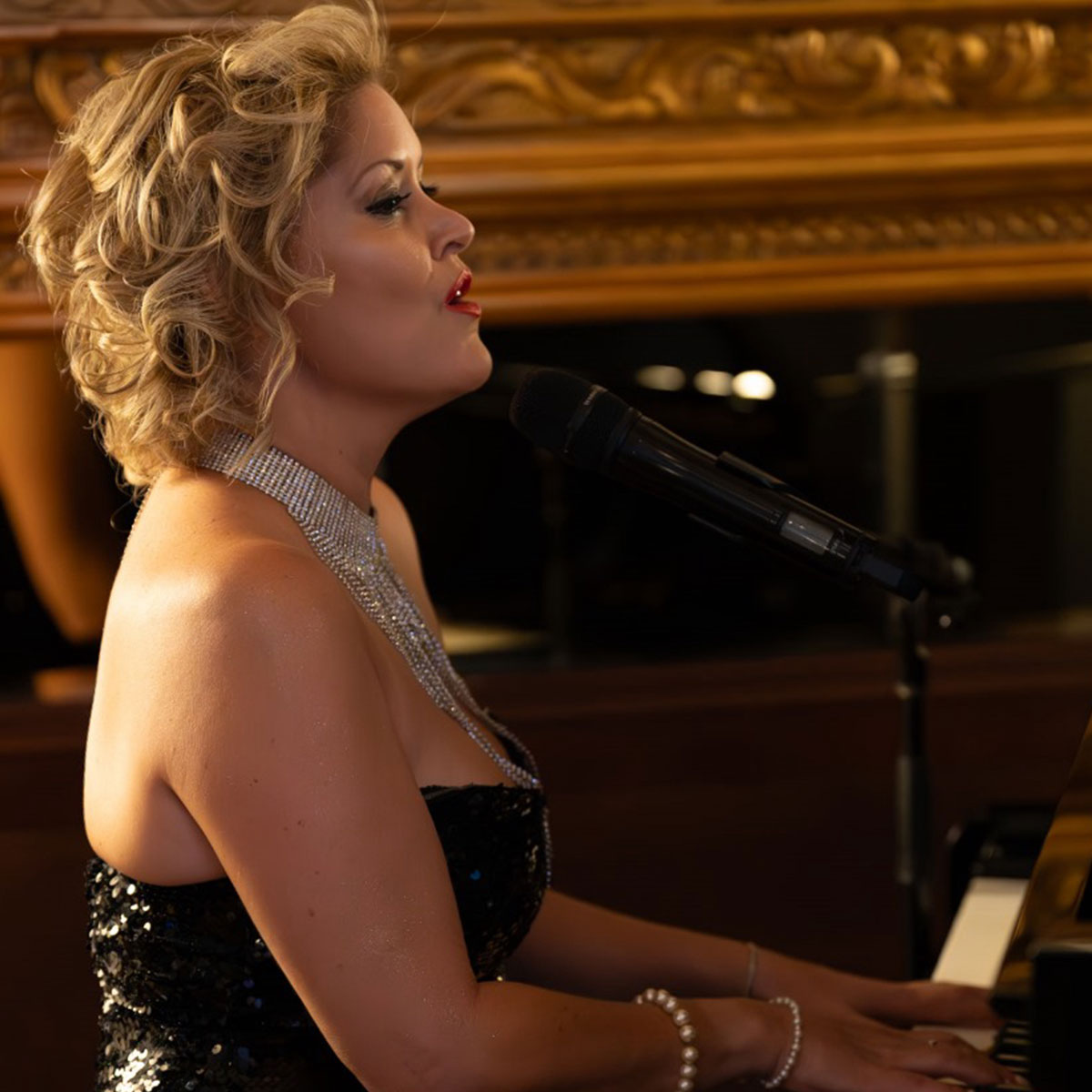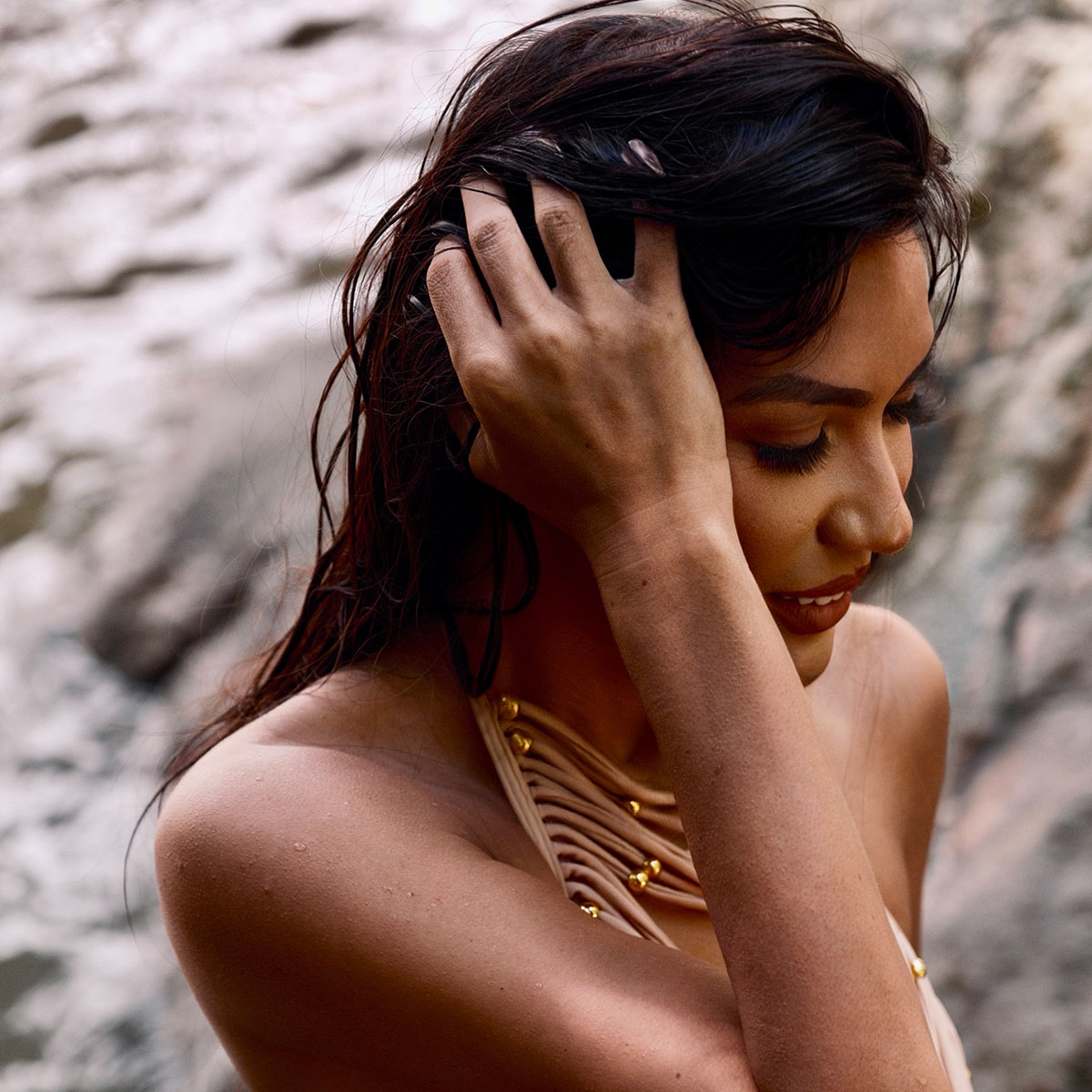There are few more unorthodox entries into the music industry than beginning formal training at age 22.
Sarah R Jay didn’t follow the timeline most industry narratives prescribe. "I always had the passion for music and singing," she explains, dismissing any notion that a structured start is the only legitimate one. Her method? Experience first, analyze a posteriori.

Sarah is half-Italian, half-Venezuelan, and currently based in the UAE. This tri-continental identity isn't a marketing hook—it’s the fabric of her sound. Her musical approach blends electronic pop with melodic techno and piano-heavy compositions, not out of novelty but necessity. “Contamination of different genres makes music more interesting and expands the audience,” she says. The word "contamination" isn’t used pejoratively here; it signals intention—an artistic embrace of complexity over conformity.
A glance at her discography suggests cohesion despite cultural breadth. Songs like “Sea of Sorrow” carry emotional precision without leaning into melodrama. They’re intimate without being intrusive. “My music comes from my soul,” she says plainly. That phrase doesn’t function as a catchy line for interviews. It forms the framework behind how she creates.
.jpg)
One might expect someone shaped by multiple cultures to feel pressure to homogenize. But conformity isn’t part of Sarah’s blueprint. “Absolutely not,” she responds when asked if she ever felt compelled to align with a particular image or sound. She avoids chasing universality through simplification. Instead, she allows her multiple truths to exist side by side.
There’s also the matter of her name. ‘Sarah R Jay’ is a nod to DJs and to Michael Jackson, a pop culture reference loaded with brilliance and baggage. Is there tension in idolizing someone whose legacy is debated? She doesn’t flinch. “MJ was never condemned of any crime,” she states.
“To me MJ has been simply the king of pop, a true genius, and a pure soul.”
The separation of art from artist has never been a neutral act. In Sarah’s case, it’s a statement of priorities—focus on impact, not controversy.
Genre boundaries are gently ignored in her world. While she embraces electronic music and pop, there are clear emotional undercurrents from classical traditions. “You will usually find a strong piano presence in my music,” she notes. The blend is deliberate: analog emotion wrapped in synthetic architecture. Rap, trap, and heavy metal don’t resonate with her, not out of dismissal but misalignment. “I don’t feel so close to my personality,” she clarifies.

Her visuals are striking, cinematic even. In the age of TikTok and Instagram, the aesthetic can easily outshine the substance. But Sarah understands the mechanics of visibility. “Nowadays, the visual aspect is fundamental to catch attention and ‘clicks’,” she admits, before quickly grounding the point.
“If the music is not good, you’ll never build a sustainable career.”
That’s not a complaint; it’s a design constraint.
For all her commitment to art, Sarah doesn’t romanticize the grind. She acknowledges the absence of institutional support for independent musicians. “Most of them, including me, just need to adopt a big determination driven by passion,” she says. Financially, she’s often relied on family support.
“It is not easy to emerge, and not even easy to be noted by the big labels.”
Her strategy? Consistency over virality. “My target is to publish 1 or 2 new songs per each month, consistently, working hard, and never giving up to my dreams.”
That kind of consistency—monthly releases, layered production, compelling visuals—would make even Taylor Swift’s PR team pause. But Sarah isn’t gunning for Swift-style omnipresence. She’s laying foundations. A magnum opus, she implies, is built brick by brick.
Emotion is the root of her creative engine. She doesn’t shy away from admitting that suffering can act as a creative accelerant. “Suffering brings you to self-analyse yourself,” she says. But she stops short of glamorizing it.
“You can create good music even from happy moments.”
Pain alone doesn’t fuel the work. The transformation of that pain into something expressive is what matters.
Dubai, her current base, features prominently in her work.
One single, “Dubai’s Moonlit Glow,” celebrates the city’s nocturnal energy. The UAE, known for its conservative regulations, might seem a restrictive canvas for an artist. Sarah disagrees. “I feel fully free to express myself and my music here,” she asserts. Her themes—emotion, space, beauty—rarely clash with local boundaries. “I’m not interested in singing about politics,” she adds. This is her strategic focus, less of an apathy.
The music industry isn’t known for nurturing mental health, and Sarah doesn’t sugarcoat it. “Music industry for sure generates stress, expectations,” she says. She’s not aware of structural support systems for emerging artists. So, she’s engineered her own: resolve, patience, and a support network rooted in family.
This self-built resilience may be why her work avoids the trap of self-indulgence. Even in “Sea of Sorrow,” which touches on grief and advocacy, the narrative feels shared. It’s more of a dialogue than a diary kept private.

Statistically, independent artists account for over 31% of the global music industry's revenue as of 2023, a leap from 22% in 2017. Still, the ecosystem heavily favors artists backed by major labels. Sarah navigates this imbalance not by courting virality but by cultivating her audience, one honest release at a time.
And if you think that's old-fashioned, you’re probably the same person still waiting for your playlist to go platinum.
Her vision for the next five years is pragmatic: keep building, keep releasing, and attract the attention of a top-tier label organically. “I just express myself,” she says.
“And during the journey I hope my music will hit larger numbers.”
It’s tempting to compare her to other genre-bending artists with multicultural backstories. But comparisons often shrink the subject. Sarah R Jay isn’t trying to be the next anything. She’s trying to be herself—with intention, with emotion, and with zero apologies.
It’s a strategy that, a posteriori, looks increasingly like foresight.
HOMEGROWN is musivv’s segment dedicated to featuring UAE-based artists. Features under this segment are considered as submissions for nomination under this category in the Musivv Awards’ annual recognition.














